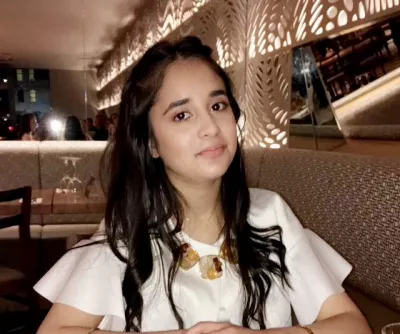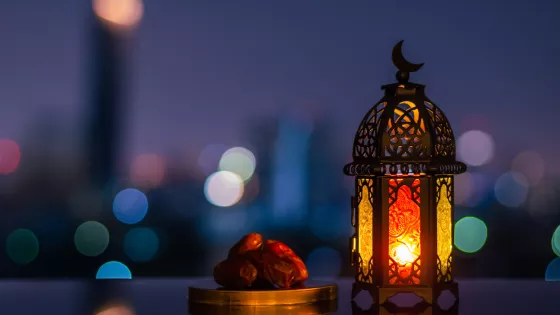The duration of this years’ Ramadan will run from from March 10th – April 9th 2024. This is the time for the Muslim community to devote themselves to their Islamic faith, for spiritual devotion and charitable giving.
Ramadan involves fasting (abstaining from food), so you cannot eat or drink from dawn until sunset each day.
As studies show, some of the main triggers of seizures for people with epilepsy are:
- Diet and lifestyle
- Sleeping patterns
- Medication habits
- Stress and Mental Health
This means that fasting during Ramadan can be a challenging and sometimes fearful time for those with epilepsy, or other medical conditions.
One of our Young Supporters, Miriam, will be partaking in Ramadan this year and offers her advice to those who will also be doing so.

I’m Miriam, a 21-year-old International Media & Communications graduate from the University of Nottingham. I started my epilepsy journey at nine-years-old and experienced my first Tonic-clonic seizure during a school play in year 7, completely blacking out on stage and fainting. I was a lead character as well!
My seizures are thankfully now under control with medication and I’m loving life. I am a radio presenter and TV series creator at uni. I love travelling, painting, playing tennis and photography so I make sure to keep up with my hobbies whenever I have the chance.
Partaking in Ramadan gives me the opportunity to be completely dedicated to an important cause and stay away from the negativities of life (swearing, drinking, smoking, anger etc). It's a month of self-reflection, strength, and compassion so we can connect with the troubles of the poor and needy. We break every fast with a huge meal and the month ends and a massive celebration of Eid. It's actually loads of fun!
It is always recommended to seek medical advice or speak to a doctor before taking part, but here are my top tips for epilepsy and Ramadan!
Advice for people with epilepsy during Ramadan
- Make sure you take your medication! If it’s twice daily, take it before you start fasting and again as soon as you break it, finally tasting the glorious essence of water we’ve been craving the entire day.
- Make sure you get enough sleep. It’s harder to fast if you’re sleep-deprived and it can accelerate seizures. Try to sleep early, keep away from screens at least half an hour before bedtime, and read an interesting book!
- Don’t stress yourself out. Fasting is meant to be a period of tranquillity so focus on what you have to do for the day and before you know it, it’s time to finish!
- Don’t be tempted. I’m starving, trust me, but I’ve stayed away from the kitchen during the entire time I’ve fasted so I don’t relent and have a bite of anything.
- I’ve tried not to scroll through TikTok; the place where Ramadan food has billions of views. But I can’t help it, everything just looks too delicious!
I’ve always been a bit daunted about fasting since I know the risks can be high. But truthfully, it’s your choice, as those with epilepsy are actually exempt from fasting. But if you feel that you want to do it, that you can do it then I say, go for it!


